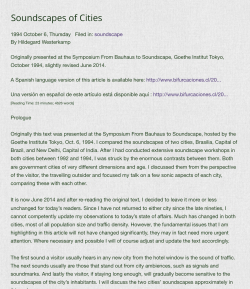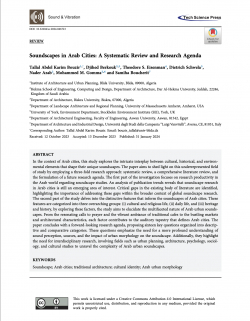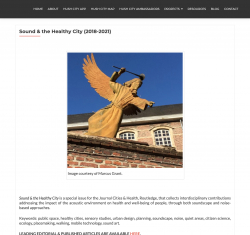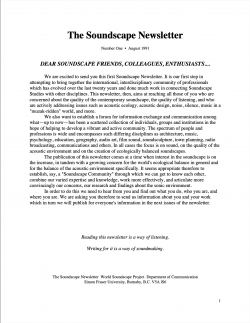Saving The Sounds of Ancient City
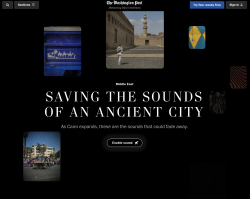
Type
Audio/Visual
Authors
Category
Article
[ Browse Items ]
Publication Year
2022
Publisher
The Washington Post, United States
URL
[ private ]
Tags
Abstract
When cities grow and change, it is easy to take stock only of what is distinctly visible: new buildings, new bridges, new roads.
What fades away more gradually are the sounds that define these places — noises that may seem to live in the background of our experiences but in fact have the power to evoke some of our most visceral memories and feelings.
In Cairo, one of the world’s great ancient cities — and one of its noisiest — ambitious development goals and a soaring population have led to dramatic urban changes in recent years.
Old architecture is crumbling. Highways and flyovers now cut through historic neighborhoods. Construction of an administrative capital, costing tens of billions of dollars, is underway in Egypt’s desert, about 30 miles from Cairo. Egypt has planned a gradual relocation of government offices to the new development.
The changes — some of them controversial among Cairenes — are reshaping the Arab world’s most populous country.
Overwhelmed by the chaos of older neighborhoods, many residents who can afford it are moving to modern, quieter compounds on the outskirts of the current capital — seeking relief from congestion, traffic and, yes, noise.
This migration looks to dramatically remake the city’s soundscape in the years to come.
For the past several years, Youssef Sherif, 28, and Nehal Ezz, 26, have wandered the Egyptian capital in search of the cries of street vendors, the tap tap tap of metal workers in their shops, the cacophony of chaotic traffic. Their goal is to capture in recordings what Cairo sounds like — right here, right now — before these noises disappear. They are collecting the sounds to share on an Instagram account and eventually hope to establish a searchable database of sounds.
What fades away more gradually are the sounds that define these places — noises that may seem to live in the background of our experiences but in fact have the power to evoke some of our most visceral memories and feelings.
In Cairo, one of the world’s great ancient cities — and one of its noisiest — ambitious development goals and a soaring population have led to dramatic urban changes in recent years.
Old architecture is crumbling. Highways and flyovers now cut through historic neighborhoods. Construction of an administrative capital, costing tens of billions of dollars, is underway in Egypt’s desert, about 30 miles from Cairo. Egypt has planned a gradual relocation of government offices to the new development.
The changes — some of them controversial among Cairenes — are reshaping the Arab world’s most populous country.
Overwhelmed by the chaos of older neighborhoods, many residents who can afford it are moving to modern, quieter compounds on the outskirts of the current capital — seeking relief from congestion, traffic and, yes, noise.
This migration looks to dramatically remake the city’s soundscape in the years to come.
For the past several years, Youssef Sherif, 28, and Nehal Ezz, 26, have wandered the Egyptian capital in search of the cries of street vendors, the tap tap tap of metal workers in their shops, the cacophony of chaotic traffic. Their goal is to capture in recordings what Cairo sounds like — right here, right now — before these noises disappear. They are collecting the sounds to share on an Instagram account and eventually hope to establish a searchable database of sounds.
Description
https://www.washingtonpost.com/world/interactive/2022/saving-sounds-an-ancient-city/
Number of Copies
1
| Library | Accession No | Call No | Copy No | Edition | Location | Availability |
|---|---|---|---|---|---|---|
| Main | 604 | 1 | Yes |

